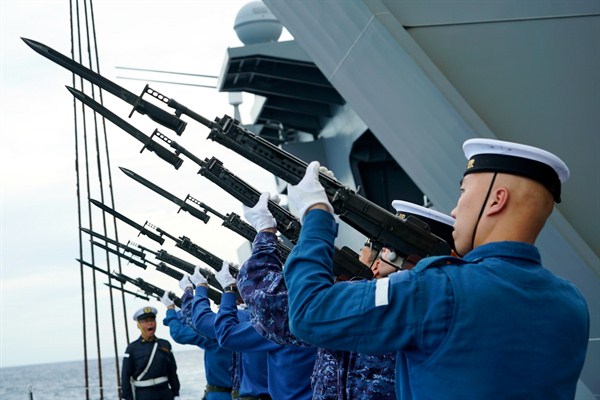In the wake of World War II, the U.S. helped Japan draft a new constitution that forever renounced the use of military force as a means of settling international disputes. Japan has nonetheless maintained a well-equipped military for the purposes of self-defense, even while largely relying on the security umbrella provided by U.S. forces in the region.
In a book that came out in April, Sheila Smith, the senior fellow for Japan studies at the Council on Foreign Relations, makes a compelling case that Tokyo is now reevaluating that security posture in response to a militarily ascendant China, a nuclear North Korea and an erratic and unreliable Trump administration. For this week’s interview on Trend Lines, she joins WPR’s Elliot Waldman for a conversation on the evolution of Japan’s postwar military strategy.
If you like what you hear on Trend Lines and what you’ve read on WPR, you can sign up for our free newsletter to get our uncompromising analysis delivered straight to your inbox. The newsletter offers a free preview article every day of the week, plus three more complimentary articles in our weekly roundup every Friday. Sign up here. Then subscribe.
Listen:
Download: MP3
Subscribe: iTunes | RSS | Spotify
Relevant Articles on WPR:
Elections in Japan Cement Abe’s Hold on Power, but Bode Ill for His Legacy
With the Prospects Fading for a U.S.-China Trade Deal, Trump Turns to Japan
Abe Has Become the Pitchman for Maintaining Multilateralism in Asia
Abe’s Rare China Visit and Japan’s Bifurcated Foreign Policy in the Trump Era
Trend Lines is produced and edited by Peter Dörrie, a freelance journalist and analyst focusing on security and resource politics in Africa. You can follow him on Twitter at @peterdoerrie.
To send feedback or questions, email us at podcast@worldpoliticsreview.com.

